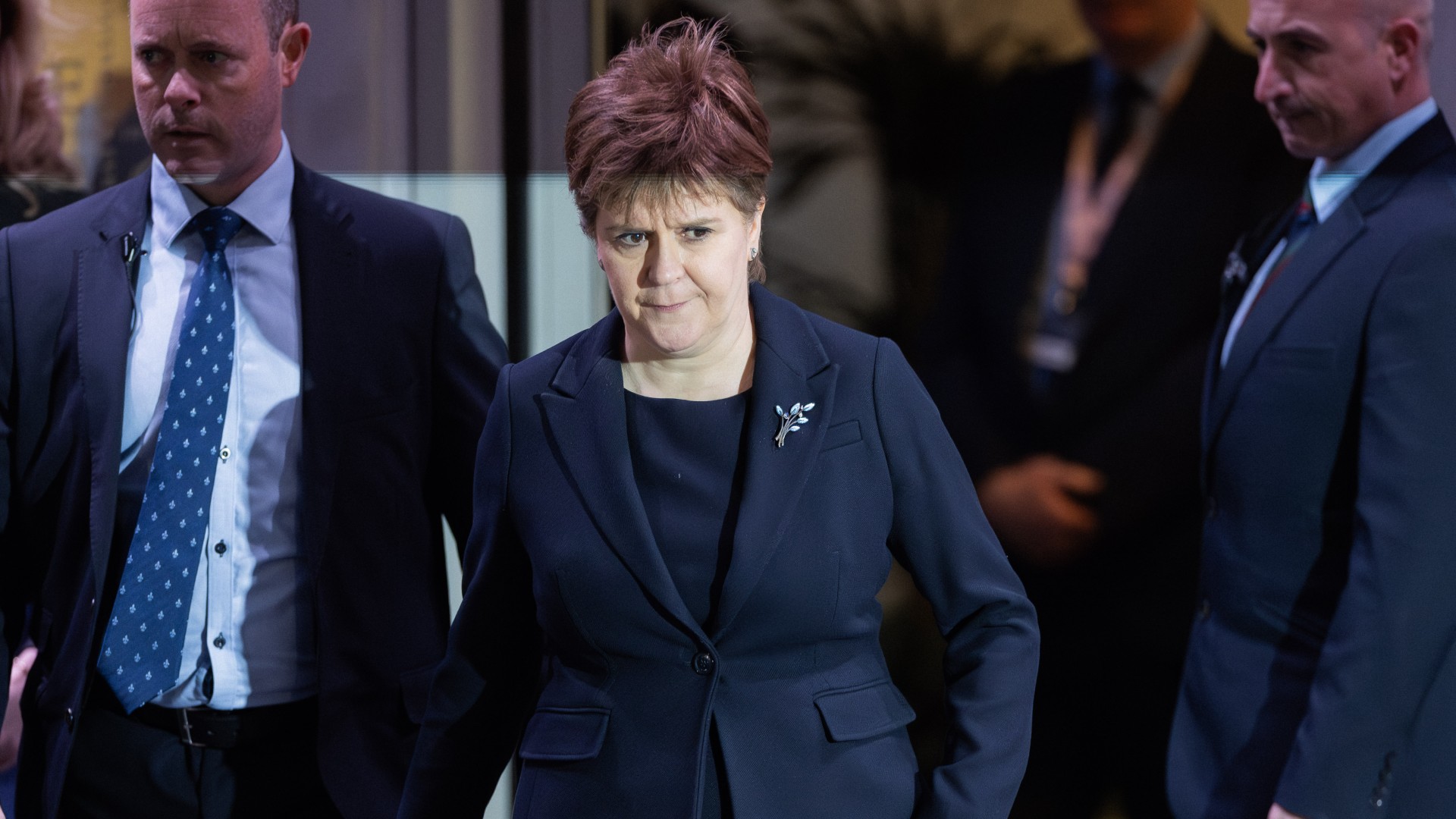Nicola Sturgeon and the Covid Inquiry: another blow to her reputation?
Scotland's ex-leader provokes outrage with testimony to Covid Inquiry about deleted WhatsApp messages from pandemic

A free daily email with the biggest news stories of the day – and the best features from TheWeek.com
You are now subscribed
Your newsletter sign-up was successful
During the pandemic, Nicola Sturgeon was seen by many as "a cut above the others", said Katy Balls in the i news site – a leader whose measured and compassionate response to the crisis was in contrast to that of the "bumbling" Boris Johnson in London.
How far she has fallen since then, said Balls. Already tarnished by her alleged involvement in a party-funding scandal, Sturgeon's reputation for honesty and transparency now risks being shattered by the Covid Inquiry.
In 2021, she promised to hand all her WhatsApp messages to the inquiry; yet while testifying last week, she eventually admitted that, in fact, she'd "not retained them". So you deleted them, asked lead counsel Jamie Dawson KC. "Yes," she replied. In her defence, she claimed that she had only used WhatsApp to discuss mundane matters, but evidence from other people's phones has presented a different picture.
The Week
Escape your echo chamber. Get the facts behind the news, plus analysis from multiple perspectives.

Sign up for The Week's Free Newsletters
From our morning news briefing to a weekly Good News Newsletter, get the best of The Week delivered directly to your inbox.
From our morning news briefing to a weekly Good News Newsletter, get the best of The Week delivered directly to your inbox.
'Cynically exploiting the crisis'
Moreover, her government had been aware that any chats risked being made public. At one point, a senior civil servant had sent a warning that such messages fall under freedom of information laws, alongside a zipped-mouth emoji.
So at that "grave moment in Scottish history", members of the SNP government were removing "all traces of their deliberations", said Reaction. To make matters worse, it has emerged that key issues were discussed not in cabinet but in the un-minuted meetings of an inner circle called the "Gold Command", from which even the finance secretary was excluded. What were they afraid might be discovered?
Perhaps it was the degree to which the SNP was "cynically exploiting" the crisis to serve the cause of independence – crafting Covid regulations not because they were necessarily right, but because they set Edinburgh apart from London.
'Bordering on vindictive'
If Sturgeon struggled at times to separate her political instincts from her role in the Covid crisis, she wasn't the only one, said Ruth Wishart in The National.
A free daily email with the biggest news stories of the day – and the best features from TheWeek.com
In planning lockdowns, Johnson was influenced by his innate libertarianism; Michael Gove wrote a paper on the need to protect the Union during the pandemic. Nor was she alone in deleting WhatsApps. The Scottish Secretary, Alister Jack, deleted his.
Sturgeon made mistakes, said Chris Deerin in The New Statesman. So did every national leader. Yet reaction to her testimony has bordered on the vindictive.
Even the most human moments, when she tearfully admitted that she'd sometimes found her job overwhelming, and regretted every death, were met with derision. It is right that she faces hard questions, but must we deny "our politicians any claim to decency or humanity"?
-
 The Olympic timekeepers keeping the Games on track
The Olympic timekeepers keeping the Games on trackUnder the Radar Swiss watchmaking giant Omega has been at the finish line of every Olympic Games for nearly 100 years
-
 Will increasing tensions with Iran boil over into war?
Will increasing tensions with Iran boil over into war?Today’s Big Question President Donald Trump has recently been threatening the country
-
 Corruption: The spy sheikh and the president
Corruption: The spy sheikh and the presidentFeature Trump is at the center of another scandal
-
 ‘The forces he united still shape the Democratic Party’
‘The forces he united still shape the Democratic Party’Instant Opinion Opinion, comment and editorials of the day
-
 How corrupt is the UK?
How corrupt is the UK?The Explainer Decline in standards ‘risks becoming a defining feature of our political culture’ as Britain falls to lowest ever score on global index
-
 How are Democrats trying to reform ICE?
How are Democrats trying to reform ICE?Today’s Big Question Democratic leadership has put forth several demands for the agency
-
 Democrats push for ICE accountability
Democrats push for ICE accountabilityFeature U.S. citizens shot and violently detained by immigration agents testify at Capitol Hill hearing
-
 Fulton County: A dress rehearsal for election theft?
Fulton County: A dress rehearsal for election theft?Feature Director of National Intelligence Tulsi Gabbard is Trump's de facto ‘voter fraud’ czar
-
 ‘Melania’: A film about nothing
‘Melania’: A film about nothingFeature Not telling all
-
 Big-time money squabbles: the conflict over California’s proposed billionaire tax
Big-time money squabbles: the conflict over California’s proposed billionaire taxTalking Points Californians worth more than $1.1 billion would pay a one-time 5% tax
-
 Trump links funding to name on Penn Station
Trump links funding to name on Penn StationSpeed Read Trump “can restart the funding with a snap of his fingers,” a Schumer insider said